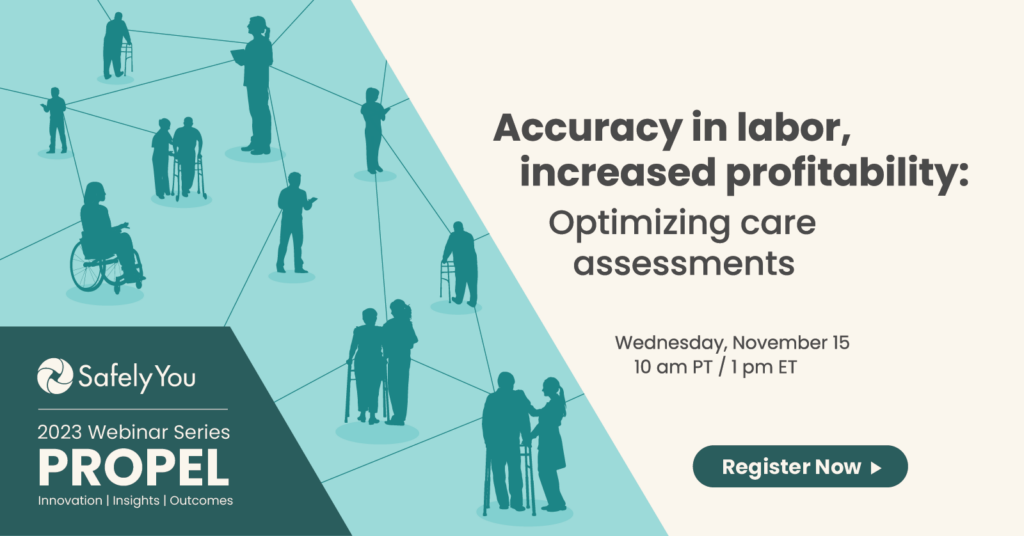Falls are the leading cause of injury-related deaths for older adults. And those living with dementia in assisted living and skilled nursing communities fall four times per year on average — nearly twice as often as those without dementia.
Fall prevention programs are challenging to adapt to memory care where alert devices seldom work and the unique cognitive and physical limitations of the residents change daily. Fall prevention programs can certainly be successful but need to be implemented the right way and do require special attention. Our team of specialists created the following checklist to help memory care communities execute and monitor effective fall prevention programs:
- Creating a fall reduction culture within a community is critical to the success of any program aimed at reducing and preventing falls.
- Preventing and reducing falls is not only the job of the clinical staff and hands-on caregivers. Every staff member, including management, activities coordinators, housekeeping, maintenance as well as visiting family members and friends, need to be educated and aware of the efforts and strategies that the community is working together to enact.
- Developing individualized care plans. No two people are the same, and all interventions and care plans should be person-specific.
- Reassessing fall risk at least every three months. Always keep in mind that status of mobility, cognition, health and capabilities are ever-changing.
- Utilizing post-fall assessments after every fall. It is extremely important to notice trends and patterns that can lead to identifying ways to prevent repeat falls.
- Developing a fall response protocol and measure compliance.
- Developing educational programs for staff. Never stop training your staff about falls, transfer techniques and dignity in our approach to residents found on the ground. Changes in staff over time requires consistent re-education.
- Evaluating your fall prevention program and outcomes on a regular basis.
- Incorporating an exercise program for residents to improve strength, balance and cognitive function.
- It is much easier to focus on preventing falls than to recover from the serious consequences of a fall. A successful fall prevention program will protect your residents’ quality of life and maintain their independence.
Amid the Covid-19 crisis, keeping residents out of the ER is more important than ever. Register for our upcoming webinar HERE for new insights on the top causes of severe falls to reduce hospitalization.






